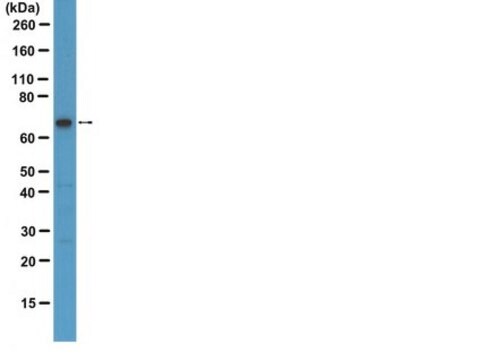1.05632
TLC plates, Cellulose
pkg of 100 plates, plate L × W 10 cm × 10 cm, glass support
Synonym(s):
Cellulose Thin Layer Chromatography Plates
Sign Into View Organizational & Contract Pricing
All Photos(1)
About This Item
UNSPSC Code:
41115711
NACRES:
NB.21
Recommended Products
material
cellulose matrix
glass support
Quality Level
feature
binder Organic Polymer
fluorescent indicator: no
packaging
pkg of 100 plates
technique(s)
thin layer chromatography (TLC): suitable
layer thickness
80-120 μm
plate L × W
10 cm × 10 cm
storage temp.
2-30°C
Related Categories
General description
100 Glass plates 10 x 10 cm
Our cellulose plates are used to analyze polar substances. An organic sorbent, cellulose is perfect for separating hydrophilic substances by partition chromatography. Typical applications include the analysis of amino acids, carbohydrates, and phosphates as well as nucleic acid and nucleic acid derivatives. We offer cellulose plates in two grades: TLC for conventional and HPTLC for demanding, high-performance separations.
Application
- A Purification and In Vitro Activity Assay for a (p)ppGpp Synthetase from Clostridium difficile.: This article details the purification and activity assay of a synthetase enzyme using cellulose TLC plates, highlighting its significance in microbial research (Pokhrel et al., 2018).
- Production of Xanthanases by Paenibacillus spp.: Complete Xanthan Degradation and Possible Applications.: The study investigates xanthan degradation by enzymes produced by Paenibacillus spp., utilizing cellulose TLC plates for analysis, indicating potential industrial applications (Ashraf et al., 2017).
- Thin-layer chromatography combined with diode laser thermal vaporization inductively coupled plasma mass spectrometry for the determination of selenomethionine and selenocysteine in algae and yeast.: This research combines TLC with advanced mass spectrometry techniques to analyze selenium compounds in biological samples, showcasing the utility of cellulose TLC plates in bioanalytical chemistry (Bednařík et al., 2018).
- Analysis of low active-pharmaceutical-ingredient signal drugs based on thin layer chromatography and surface-enhanced Raman spectroscopy.: This study demonstrates the combination of TLC and Raman spectroscopy for the analysis of pharmaceuticals, emphasizing the effectiveness of cellulose TLC plates in drug analysis (Li et al., 2016).
- Fast assessment of planar chromatographic layers quality using pulse thermovision method.: This article presents a method for assessing the quality of chromatographic layers, including cellulose TLC plates, using thermovision techniques, which can enhance analytical reliability (Suszyński et al., 2014).
Linkage
Replaces: 5632-5; 5632
Analysis Note
Layer thickness: 80 - 120 µm
Deviation of layer thickness per plate: ≤ 30 µm
Aminoacid test
hRf-values
- L-serine, amino acid test:
20 - 30
- L-threonine, amino acid test: 29 - 36
- L-alanine, amino acid test: 30 - 40
- L-methionine, amino acid test: 49 - 60
- L-phenylalanine, amino acid test: 59 - 70
- L-leucine, amino acid test: 66 - 76
typical value determined on a plate
Eluent: 1-Butanol/ acetone/ acetic acid/ water (35/35/7/23 v/v/v/v) twice developed
Deviation of layer thickness per plate: ≤ 30 µm
Aminoacid test
hRf-values
- L-serine, amino acid test:
20 - 30
- L-threonine, amino acid test: 29 - 36
- L-alanine, amino acid test: 30 - 40
- L-methionine, amino acid test: 49 - 60
- L-phenylalanine, amino acid test: 59 - 70
- L-leucine, amino acid test: 66 - 76
typical value determined on a plate
Eluent: 1-Butanol/ acetone/ acetic acid/ water (35/35/7/23 v/v/v/v) twice developed
Certificates of Analysis (COA)
Search for Certificates of Analysis (COA) by entering the products Lot/Batch Number. Lot and Batch Numbers can be found on a product’s label following the words ‘Lot’ or ‘Batch’.
Already Own This Product?
Find documentation for the products that you have recently purchased in the Document Library.
Our team of scientists has experience in all areas of research including Life Science, Material Science, Chemical Synthesis, Chromatography, Analytical and many others.
Contact Technical Service








